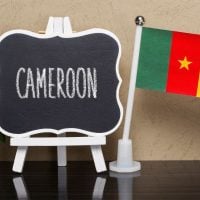Deadline: 31-Oct-2025
The Center for Effective Global Action (CEGA) is inviting one scholar from Ecuador to participate in a four-month quantitative research fellowship at UC Berkeley, to be completed during the Spring 2026 academic semester (January-May 2026).
The fellowship emphasizes developing research skills to assess the effectiveness of programs using a “two-generation” approach, while allowing fellows to work on their own research study, audit courses at UC Berkeley, and receive mentorship from faculty members. Applicants from Ecuador with lived displacement experience and an interest in conducting research in Ecuador are particularly encouraged to apply.
During the fellowship, participants will audit UC Berkeley courses, develop or advance research on forced displacement in Ecuador with mentorship, collaborate with a peer PhD partner, participate in practical modules on research methods and data analysis, receive supplementary training in leadership and communication skills, network and present at nearby universities, and design research curricula for use at their home institutions.
CEGA covers room and board in Berkeley, health insurance, a stipend, visa fees, and round-trip economy airfare for selected fellows. Support for spouses or family members is not available.
After completing the fellowship, scholars are expected to return to a university or research institute in their home country or region and assume a leadership role in promoting evidence-based policy. Fellows will also receive a “Catalyst” grant to train colleagues and students in rigorous research methods focused on forced displacement; sponsorship to attend a researcher gathering or evidence dissemination event; the choice of either a USD $10,000 pilot grant to continue a research project developed at UC Berkeley or a 4-month paid research placement at a partner organization or refugee-led organization; and access to funding for publication fees as needed.
Eligibility requires fluency in English, being born and raised in Ecuador with at least secondary schooling completed in the country, and preference will be given to those currently based in Ecuador. Applicants with lived displacement experience—including refugees, IDPs, asylum seekers, returned refugees or IDPs, stateless individuals, host community members, or other groups of concern to UNHCR—will be prioritized.
Candidates must have completed a PhD within the last 8 years or be enrolled in a PhD program in economics, statistics, epidemiology/public health, migration studies, or another social science discipline. Exceptional candidates holding a Master’s degree and intending to pursue a PhD may also apply. Applicants should have a current affiliation with a research institution, university, or research organization in South America that supports policy-relevant, quantitative social science research, and plan to return to Ecuador or the region after the fellowship. Women and individuals with lived displacement experience are strongly encouraged to apply.
Applications must include a 2-minute personal statement video describing motivations for applying; a 2-page research plan on a displacement-related topic with a focus on evaluating “two-generation” programs; a CV/resume; transcripts from coursework completed in the last 5 years; evidence of leave approval from a supervisor or department chair; contact information for one reference; and optional supporting documents.
Applications must be submitted through the submittable portal by Friday, October 31, at 5 pm GMT.
For more information, visit The Center for Effective Global Action.









































